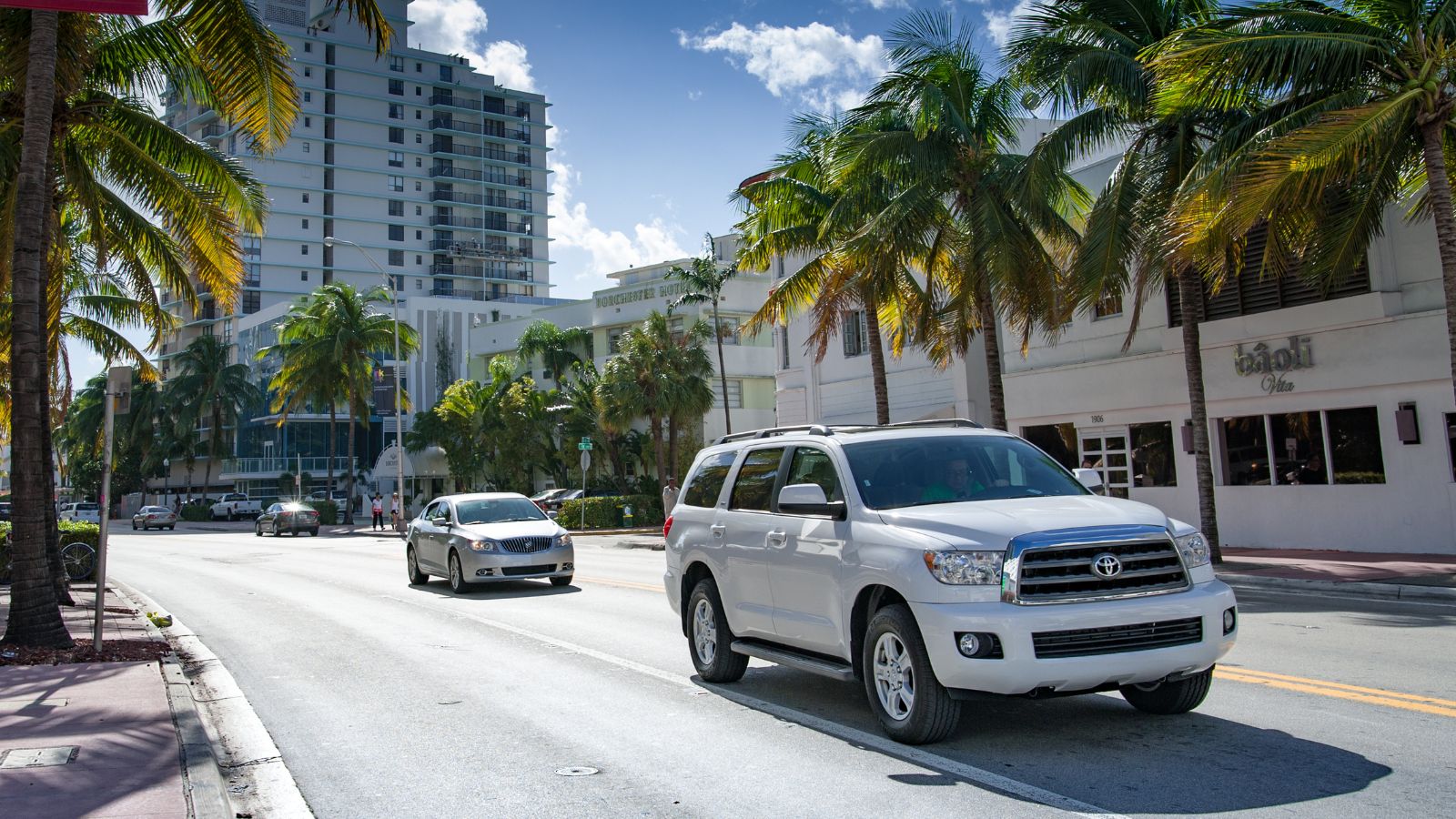As soon as the weather begins to warm up, visitors flock to Florida, whether by air, car or sea. In fact, Florida reported 142.9 million visitors in 2024, with an estimated 40.6 million visiting during the first quarter of that year.
Whether you’re a year-round resident of Florida or you’re headed to its sandy beaches, blue springs or to Disney, it’s safe to expect more cars on the road. More vehicles and more visitors, along with spring weather, mean an increased presence of road debris. From downed tree branches to tire treads and even construction materials, the warm and rainy season can lead to more debris accumulating on the roadways, posing a risk to both vehicle safety and tire integrity.
Why Spring Weather Leads to More Debris
It’s not just stripped rubber from an 18-wheeler. Spring in Florida also brings a mix of unpredictable weather patterns, including thunderstorms, high winds and heavy rains – all of which contribute to an uptick of natural debris.
Sudden, Intense Thunderstorms
Strong winds can cause tree limbs to snap, leaves to scatter, and debris to fly onto roadways, all of which create a hazardous driving environment.
Vegetation Growth
The greening up of grass and spring pollen in the air means trees and bushes are rapidly growing and producing more debris like fallen leaves, twigs and flowers. When combined with wet roads from rain, these materials can make for slippery conditions.
Construction and Roadwork
From road maintenance projects to building developments, construction work can leave behind debris, including traffic cones and concrete pieces to rebar and gravel. When construction materials spill onto the road or get dislodged by passing vehicles, it creates hazards for all drivers.
How Road Debris Puts Your Tires at Risk
Just got a new set of tires? Here’s how road debris can affect your wheels.
Punctures and Flats
Sharp objects like nails, screws or glass can puncture the tire’s rubber, leading to flats or slow leaks. In some cases, you might not even realize you have a small puncture until you start losing tire pressure.
Sidewall Damage
Tree branches or metal can strike the sidewall of a tire, potentially causing cuts, tears or abrasions that compromise the tire’s integrity. Sidewall damage weakens the tire and puts you at risk for a blowout if not addressed.
Blowouts
Larger pieces of debris, like broken asphalt or large rocks, can cause sudden impact that results in a blowout. This, in turn, can cause a loss of control of the vehicle, especially at high speeds, putting you and others at risk.
Uneven Wear
Driving over rough or uneven debris can cause irregular tire wear, which will shorten the lifespan of your tires.

Warning Signs of Tire Damage from Debris
Does your car feel a bit “off” when you’re on the road? Here are a few signs to check those tires:
- If you feel vibration or pulling when holding your steering wheel, it could indicate a puncture or damage from hitting debris.
- A sudden drop in tire pressure can be a sign that you have a slow leak or puncture.
- If you see visible cuts or tears, be sure to get them checked before they further weaken your tires.
- If you notice that your tire tread is wearing unevenly or that certain areas of the tire look worn down more than others, it could be a sign of tire damage.
Tips to Protect Your Tires This Spring
While you may not be able to swerve fast enough on the interstate to miss a piece of bumper left on the road, you can give your tires the best chance at making it through spring driving with some preventive maintenance and cheap car insurance in Florida.
- Keep tires properly inflated, and check tire pressure regularly, especially after long drives or driving through debris-prone areas.
- If you do encounter road debris, slow down and maintain a safe distance from other vehicles. If possible, avoid swerving or making sharp turns to avoid hitting debris directly.
- Before and after the spring season, have your tires inspected by a professional. They can spot early signs of damage, such as punctures or weak spots, and make necessary repairs.
- If you often drive in debris-heavy areas, consider extra protection on the road. Some manufacturers offer tires with stronger sidewalls and more puncture-resistant materials.
What to Do If You Hit Debris on the Road
If you do strike a large piece of debris, pull over as soon as it’s safe to do so, and inspect tires for visible damage. Also, check your car’s undercarriage to ensure there’s no damage to your vehicle. If you suspect there is, make an appointment with a mechanic. And if you spot heavy debris on the interstate or a back road, be sure to report it to the proper authorities or road maintenance crews as soon as it’s safe to do so.
Florida is home to stunningly beautiful beaches, world-class theme parks, wildlife and nature reserves. And with regular tire inspections, especially during the spring season when road debris is more prevalent, you can not only help extend the life of your tires and stay safer on the road, but you can enjoy your travels, even if it’s just a daily commute. While you’re thinking about your vehicle’s safety, don’t forget to request Florida car insurance quotes to ensure you’re covered in case of an emergency.


 By
By 





